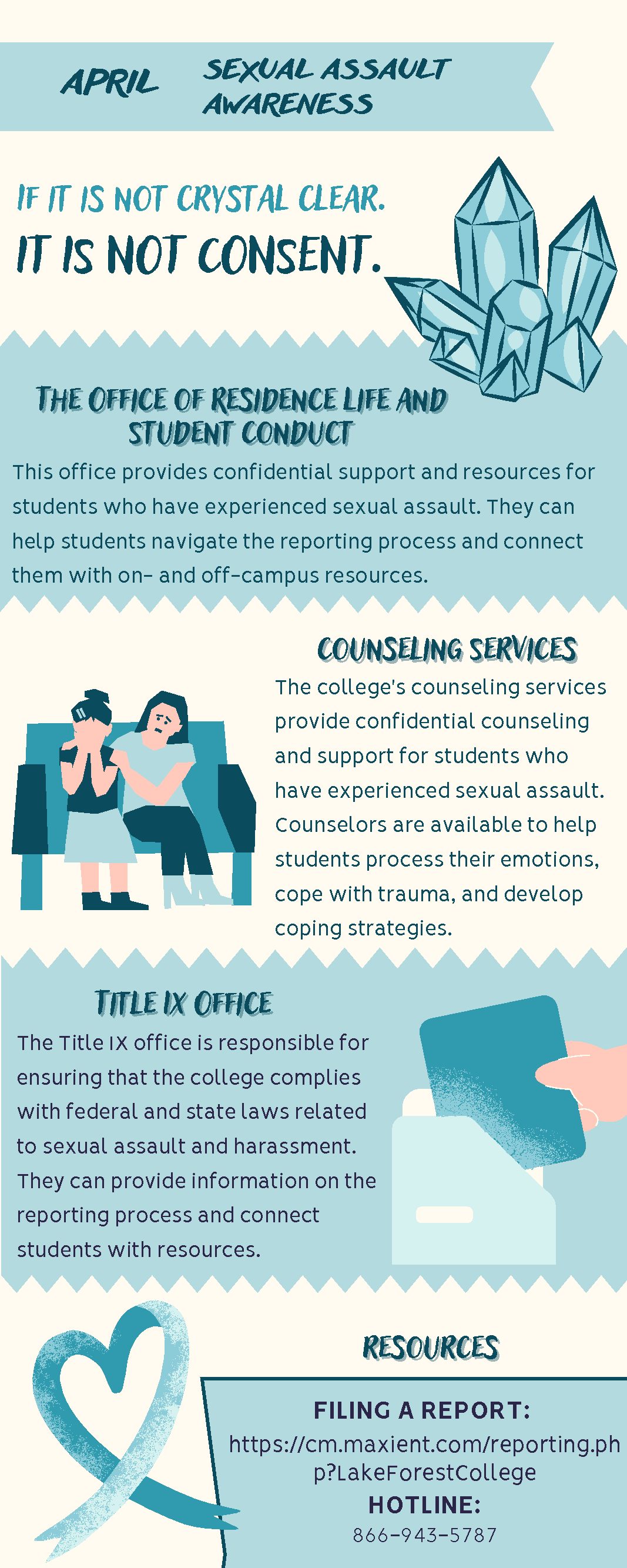At the beginning of February, Lake Forest College’s Coalition Against Sexual Misconduct issued a campus-wide survey assessing the College’s climate regarding sexual misconduct. The survey has received much attention over the past two months, as the Health and Wellness Center, Dean Rob Flot, and Student Government Vice President Lily Collins sent out several emails encouraging students to participate in the survey.
Supported by Dean Flot, Dr. Jennifer Fast started the Coalition Against Sexual Misconduct (CASM) in 2013. CASM was formed in order to “acknowledge and address the pervasiveness of rape culture, sexual misconduct, and dating violence,” according to Fast.
Striving to make long-term changes on these issues, CASM conducted an initial campus climate sexual assault survey in the fall of 2013. The results of that survey helped the coalition make recommendations to the College’s senior administration. “Many of the policy changes, communications, trainings, and prevention efforts that have occurred over the last year and a half are a result of those recommendations,” Fast said.
As Fast pointed out, the initial survey confirmed the presence of sexual misconduct on Lake Forest College’s campus. S.W.A.N. (Students for Women’s Awareness Network) President Louisa Van Akkeren echoed this sentiment.
“From what I’ve observed on campus, and from what member of my clubs have confided during our meetings, sexual assault is definitely something that occurs on our campus, but it will also happen any place with a large group of people living and partying close together,” Van Akkeren said.
Acknowledging the reality of sexual assault at Lake Forest College, CASM decided to conduct its second campus climate survey. This most recent survey functioned, in part, to “evaluate if the efforts being made to create change are working,” Fast said.
Recent federal legislation reinforced Lake Forest College’s decision to conduct its second sexual assault campus climate survey. “The White House Task Force of Campus Sexual Assault issued a number of recommendations to higher education institutions that are now mandated through the Campus Accountability and Safety Act,” said Fast. These recommendations include campus climate surveys.
But campus climate surveys require student involvement in order to initiate social change. Collins sent out an email to students in late February, subject lined “An urgent request,” encouraging students to participate in the sexual misconduct survey.
In the email, Collins wrote, “filling out the survey is one of the best ways for you to help those affected, because that information will allow all campus departments to prepare to assist current and future students in the most effective ways.”
Collins is optimistic that the campus climate survey will raise awareness about, and ideally prevent, sexual misconduct on campus. “The more cognizant we are about the frequency and degree of sexual misconduct on our campus, the better prepared we all can be,” Collins said.. “The results from the survey will expand, and likely improve, Lake Forest College’s procedures to address matters of sexual misconduct.”
Ultimately, initiatives to prevent sexual misconduct are meant to benefit a community as a whole. “Sexual misconduct is not an issue that affects just the survivor and perpetrator,” Fast said. “It is such a complex issue that involves all of us.”
Campus climate surveys are essential to tackling the complexities of sexual misconduct in a dynamic and pragmatic way. Creating a healthy campus climate, as Fast said, requires “[reducing] these incidents so that students can do what they came here to do; to learn, to grow, and to be successful.”



